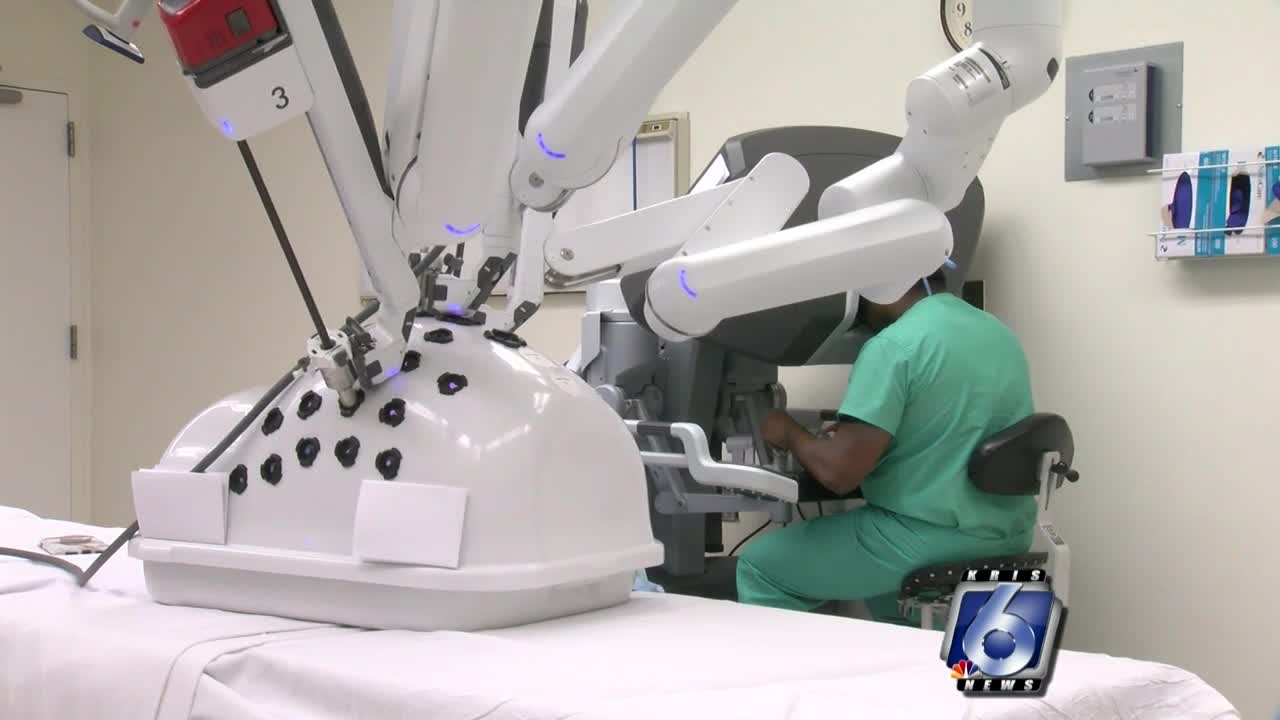CORPUS CHRISTI — If you’re considering bariatric surgery, you may be surprised to learn that more than 1.3 million people underwent this surgery from 2011 through 2017.
Many patients who are battling obesity are now undergoing robotic-assisted sleeve gastrectomy and gastric bypass surgeries.
This is the latest in bypass weight loss surgery, and it can now be performed right here in Corpus Christi.
Doctor Jegan Gopal at Corpus Christi Medical Center-Bay Area successfully performed one of the first robotic-assisted bariatric surgeries in the Coastal Bend.
“One of the reasons I came out to Corpus Christi is because I’m fellowship trained in bariatric surgery. You don’t have that around here and provide services like gastric bypass and sleeve not only with the laparoscope, but with robotics as well. So we have actually done the first procedure with robotic-assisted laparoscopic sleeve gastrectomy and the gastric bypass here at Bay Area Medical Center,” Gopal said.
This weight loss surgery will allow patients who are unable to lose weight with diet and exercise to have this procedure done here in town.
“It is a huge impact. So what that means is that we have cutting edge technology here in town, and people don’t have to travel to San Antonio, Houston, or other parts of the country to get top cutting edge procedures,“ said Gopal.
When left untreated, obesity can lead to other chronic diseases.
“One of the things that people don’t understand, it is not just weight loss we improve. Obesity in itself affects diabetes, high blood pressure, heart disease, cholesterol, sleep apnea, and stroke risk. So there are numerous organ systems it affects,” said Gopal.
Robotics-assisted procedures are less invasive than traditional open surgery.
“Primarily why our patients do so much better these days is because we can do everything laparoscopic or with small incisions and so pain is less, recovery is quicker, complications are much fewer and rare,” said Gopal.
In this new approach to weight loss surgery, the surgeon's hand controls a robot that enhances the precision, stability and visualization of the procedure. Using a 3D camera, the robot provides a clear and steady view of the surgical field, giving the surgeon more control during the operation.
“What that translates is safer surgery. We can actually take on higher risk or revisional surgeries, or bigger and more complicated patients and get them done safely with minimal risk,” said Gopal.
Both sleeve gastrectomy and gastric bypass surgeries are performed using minimally invasive techniques—either laparoscopic surgery or robotic-assisted surgery,
At Bay Area, both sleeve gastrectomy and Roux-en-Y gastric bypass surgeries are performed using robotic-assisted technology. The surgeon sits at a console next to you and operates using tiny instruments through a few small incisions.
Here are some of the benefits:
- Gastric bypass and other bariatric surgeries can provide long-term weight loss. The amount of weight you lose depends on your type of surgery and your change in lifestyle habits. It may be possible to lose half, or even more, of your excess weight within two years.
- In addition to weight loss, gastric bypass surgery may improve or resolve conditions often related to being overweight, including:
Gastroesophageal reflux disease
- Heart disease
- High blood pressure
- Severe sleep apnea
- Type 2 diabetes
- Stroke
- Gastric bypass surgery can also improve your ability to perform routine daily activities, which could help improve your quality of life.
The impact of obesity on longevity has been well documented. In the world, over 2.5 million deaths annually can be attributed to obesity; in the U.S. alone over 400,000 deaths attributable to obesity occur per year—second only to those attributable to cigarette smoking.



